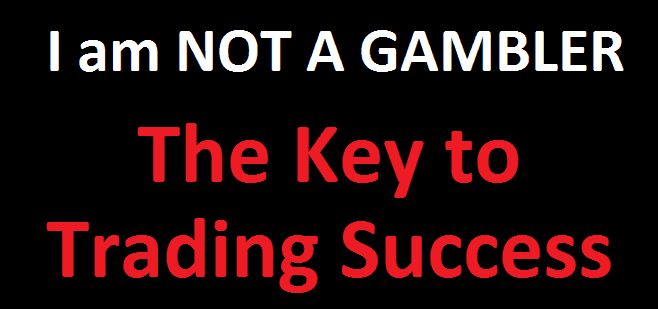Jul 09, 2018 That is why, as a trader, your mindset should be akin to that of the CASINO and NOT the gambler, who merely focuses on one event (or trade) at a time. Casinos are profitable year, after year, after year, despite having a business where the outcome of each card laid down, dice roll, or slot pull is unknown each and every time.
- Difference Between Forex And Gambling Free
- Difference Between Forex And Gambling And Money
- Difference Between Forex And Gambling Table
Forex trading has been associated with roulette and other gambling games because of the high risks involved. However, forex trading should be about market analysis than a mere gamble. Making profits through this industry is not just a matter of chance, but instead, involves risk bearing and anticipatory skills.With this, newbies normally seek the help of the best forex broker that they believe can help them, in order to make wise trading decisions.
Difference Between Forex And Gambling Free

If you are a new forex trader, here are the main differences between gambling and trading in forex.
- Strategy – A gambler simply jumps into the foreign exchange market just for the sake of making a trade. In forex, trading without planning and implementing a strategy more likely result in bigger losses and minimal gains. A real forex trader devises a sound trading plan and strategizes proper entry point before jumping into the market.
- Proper Management of Risks – Although forex trading and gambling both involve chance, they are still very different. While a gambler is not aware of different tools for managing risks like stop losses and pegs, a professional forex trader utilizes these for his advantage. Moreover, gamblers take risks based on chance, while experienced traders employ various ways to minimize risks and maximize gains for every trade. The foreign exchange market is highly fluctuating, thus, experienced traders perform certain measures to make sure that their money will not be lost in vain.
- Holding Trades – In a highly fluctuating market such as this, it is highly necessary to know when to sell a losing trade and when to hold on to it in anticipation of great profits. Normally, new traders tend to gamble their way to success by holding on to trades that they feel might bring them great profits. In order to correctly anticipate the rise and fall of prices, years of forex trading experience is necessary.It is also important to note that even after years of experience in the industry, losses may still be experienced.
- Leverage – Leverage is one of the good features in forex, but gambling can make it a common cause of additional losses. Basically, leverage is the amount of money that a trader can borrow from the market just in case he has exhausted all his personal funds. Nonetheless, leverage also puts a greater amount of funds at risk because the trader uses the capital borrowed from the market. Gambling in the forex market with leverage may only lead to the creation of debt and huge losses.

Difference Between Forex And Gambling And Money
Initially, it is difficult to differentiate gambling and trading in the foreign exchange market. It is also common for new traders to get confused between the two.The points discussed in this article are just some of the major differences between trading and gambling in the forex market, but may also serve as guidelines on what to avoid when trading in the market.
Difference Between Forex And Gambling Table
- Without A Forex Trading Strategy You Are Gambling. Before we dive right into how trading can become gambling, we should just clarify that there is a clear difference between the two and they are not interchangeable terms.
- One important difference between spread betting and Forex trading is that spread betting is considered to be a form of gambling, and therefore is not acceptable under Muslim laws. Forex trading, on the other hand, can be carried out under Islamic law and most brokers offer the opportunity for Muslim traders to open a special Islamic account to enable them to take advantage of this type of trading.